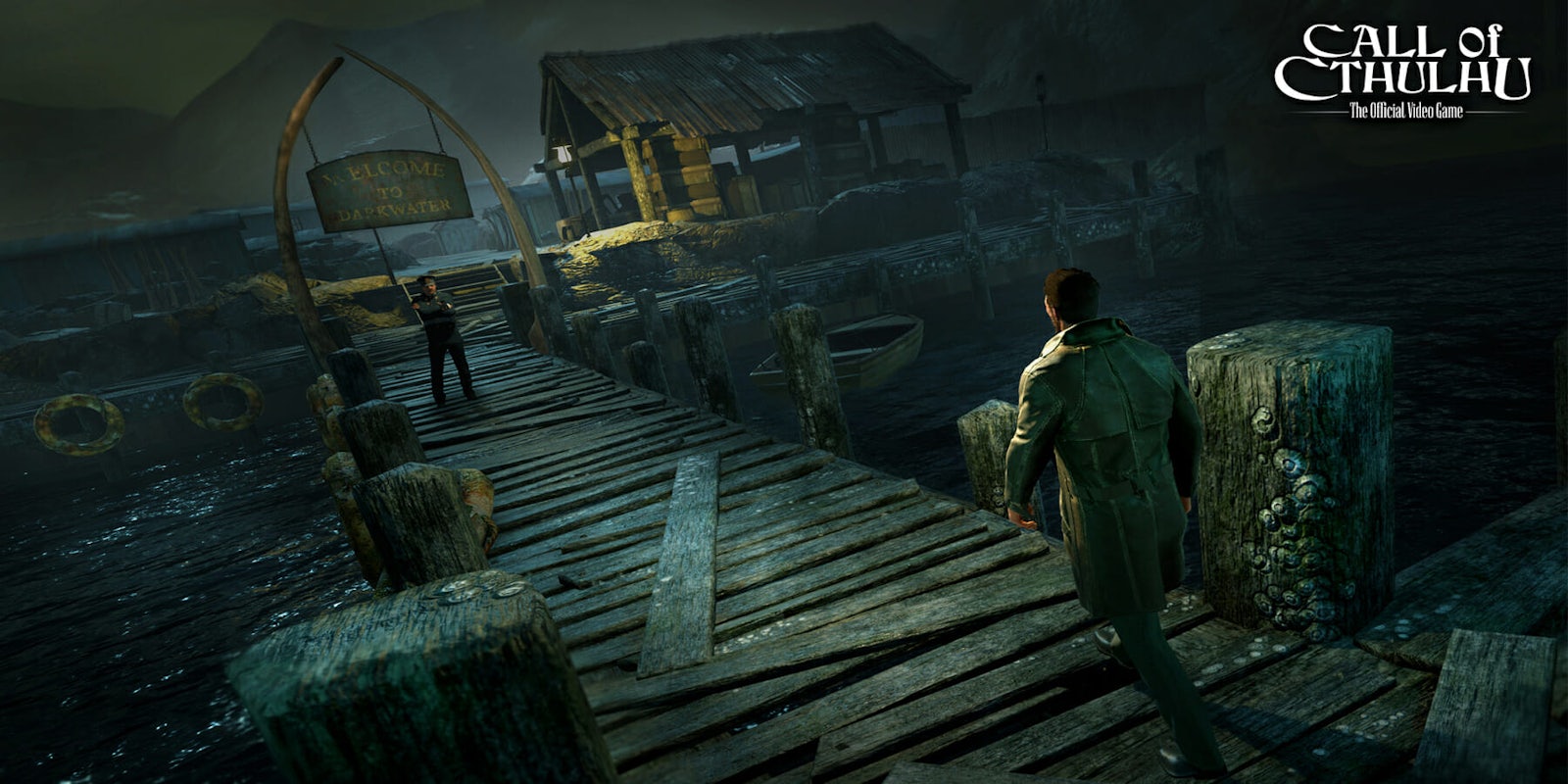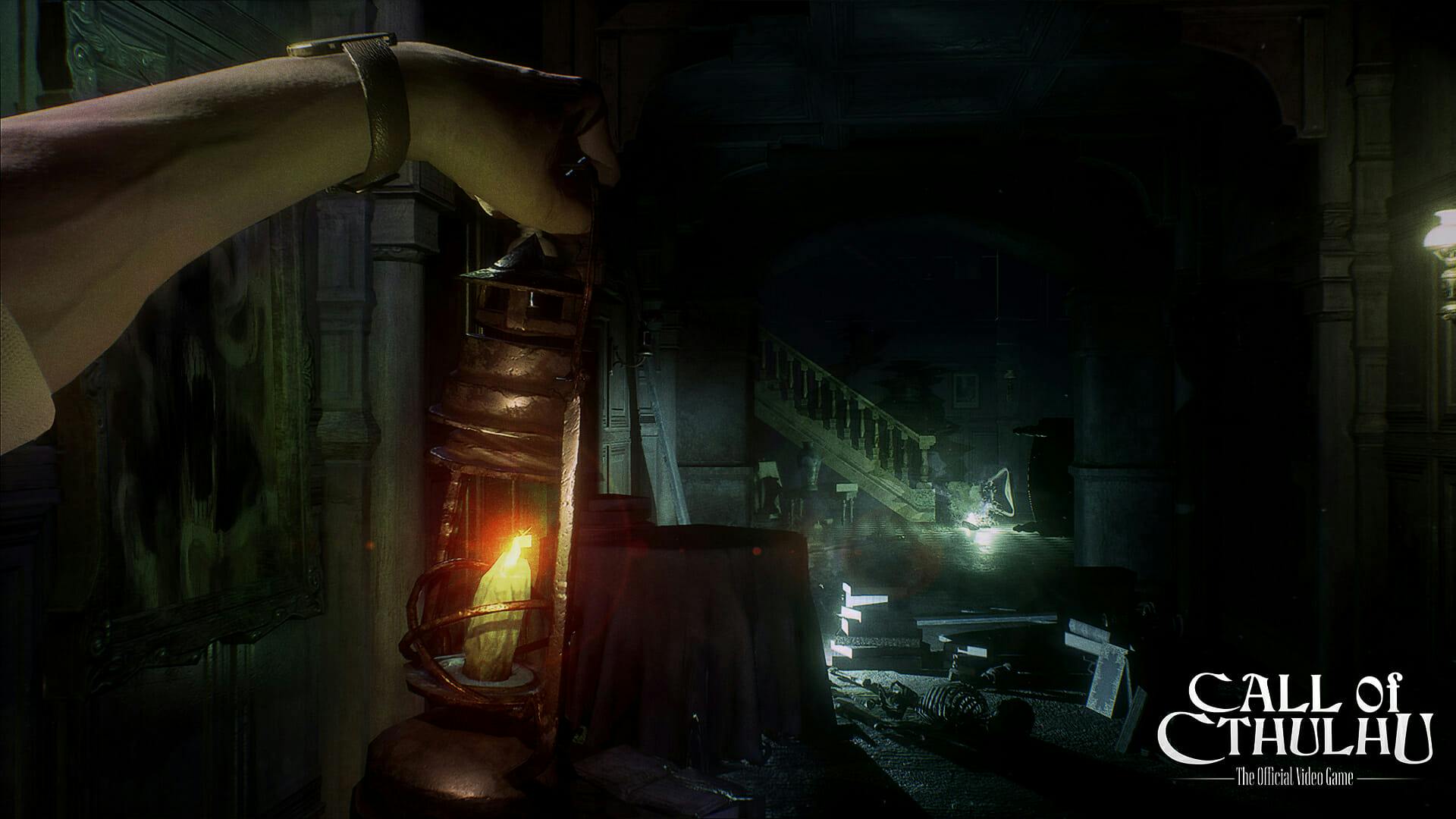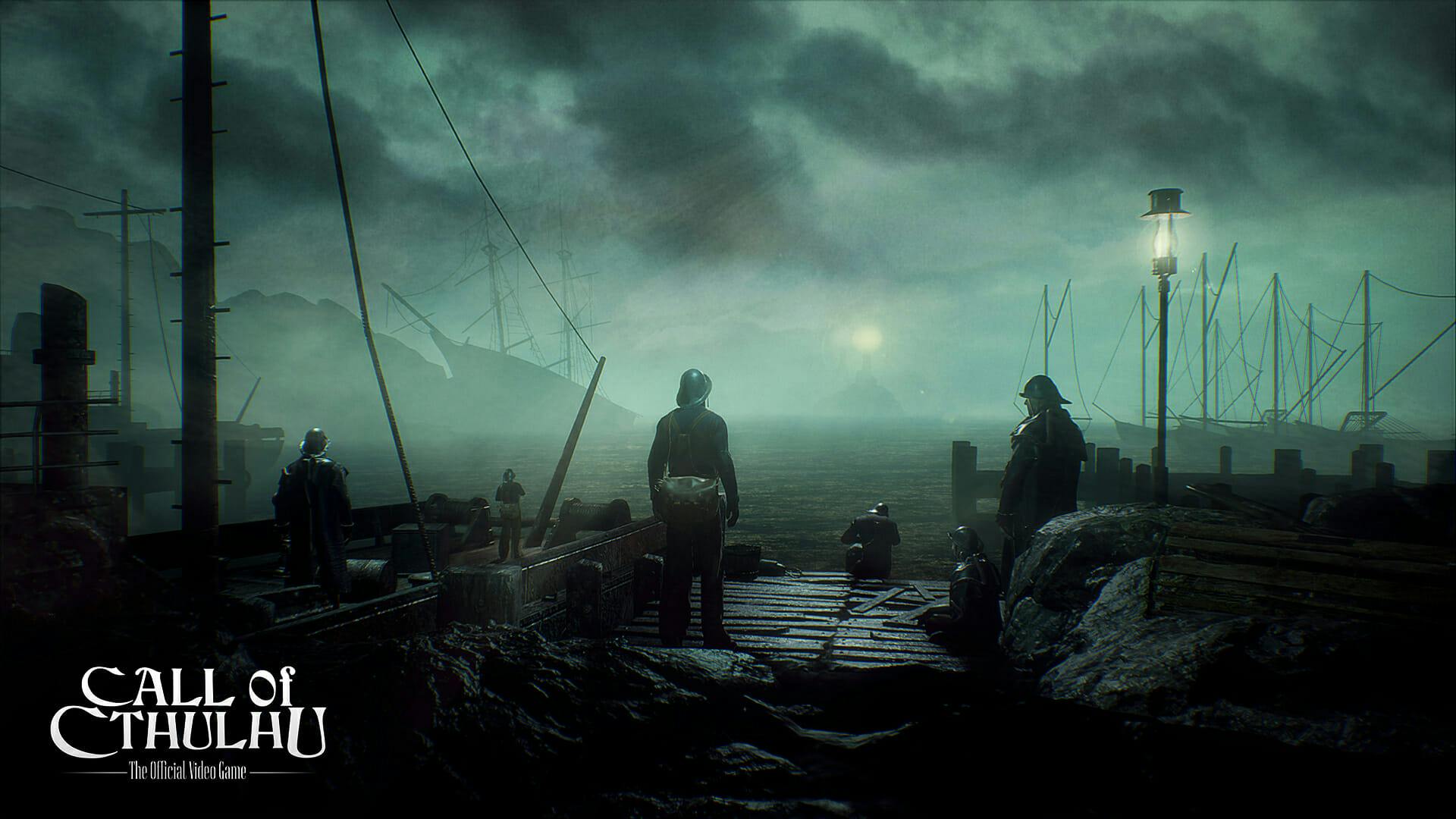Creatures. Cultists. Chaos. The trademark tenets of H.P. Lovecraft’s fiction are well-known at this point, and well-trodden at that. It has almost become cliché to label anything as “Lovecraftian.” While the specific elements of Lovecraft’s work are easy to identify, their influence has been distilled to describe any vaguely atmospheric horror.
Cyanide Studios’ Call of Cthulhu is a more direct adaptation of the iconic author’s mythos. Based on the tabletop role-playing game based on the short story from 1928, this game purposefully rides the reputation of Lovecraft’s work. Its mystery comes across as a carefully crafted concoction of the most noxious and odious elements of several stories, and nails the tone of a slow descent into madness.
Players follow Edward Pierce, a particularly hapless private investigator, working to unravel the disappearance of a local painter and her family. Pierce is something of a blank slate, his attributes to be determined by the player, but he comes with some specific baggage. Nightmares from his time in the Great War manifest themselves as palpable visions. Work comes slow and rarely, if at all. And the turn of Prohibition has complicated his favorite pastime.
In the opening sequence, Pierce receives his latest assignment and ponders a bottle of whisky. He doesn’t have to drink, though, and should you choose to make him, the game notes that this will affect his destiny.
Those roots in a traditional role-playing experience let you truly inhabit Call of Cthulhu’s grimy tenor. As you set to work investigating Darkwater Island, Pierce’s talents can grow and diversify. A branching skill tree allows you to build out abilities used in interactive scenarios. Dumping points into your investigation prowess makes physical objects stand out more while searching for clues. Likewise, interacting with items in the environment deepens Pierce’s understanding of arcane secrets.
Your search for answers comes through recreating crime scenes. Pierce wanders around these visions in search of clues that make use of the player’s intuition. You’ll need to remember certain prompts to solve tough puzzles. Clues spoken by characters or written in text logs are essential, and the game doesn’t track them all for you. What might seem like a throwaway dialogue exchange could be the key to a hidden puzzle that moves the story forward. Having the character’s prowess as a detective directly tied to the player’s progression is a smart design choice that makes Edward Pierce’s world all the more tangible.
An immersive quality is key to make a Lovecraft adaptation work, and Call of Cthulhu pulls it off quite well. Much of the actual gameplay is intentionally languid, to better portray the player as an active participant in the proceedings. When you feel like Pierce, thanks to the act of executing his actions, the terrifying turns the game takes come across authentically.
Likewise, any actual horror in the story is delivered with care and consideration. This is not an experience ripe with jump scares and cheap shocks. Efficiently structured into separate chapters, Call of Cthulhu builds tension over time and only relies on cutscenes when most effective. Much of the dread is built in your moment-to-moment interactions. There is a foreboding feeling for many of the first few hours, as you read through diary entries and newspaper clippings that signify a dreary town slipping into something much more sinister.
The bulk of the game is presented in large, open areas to poke and prod around. Slowly, the occult elements reveal themselves. As you begin to piece together the narrative of evil infecting the island, more characters and perspectives become tangled in the ongoing case. For the most part, the game is paced well and layers surprises on top of intriguing threads.
But there are some serious technical snags that threaten to derail Call of Cthulhu. Because you’re investigating these rooms from a first-person perspective, it’s easy to miss certain clues. Additionally, new mechanics aren’t communicated very well when introduced. There are more than a few segments that left me perplexed in their direction and were only solved by testing every possible option.
Any instances of stealth or combat only serve to frustrate the player. Thankfully, there aren’t many. Fleeing asylum guards or interdimensional creatures should be the most exciting parts of the story, but the mechanics of this game do not accommodate action well.
Still, the detective role-playing conceit makes Call of Cthulhu more than competent. Coupled with a compelling, unnerving take on Lovecraft mythos, the majority of the game is quite enjoyable. Where other titles would exploit the overtly scary aspects of this kind of story, Cyanide Studios smartly present the personal dread that can make a nightmare so disturbing.
3.5/5
Call of Cthulhu is available now for PC, PlayStation 4 and Xbox One. This review was written based on a PS4 copy of the game provided by the publisher.




